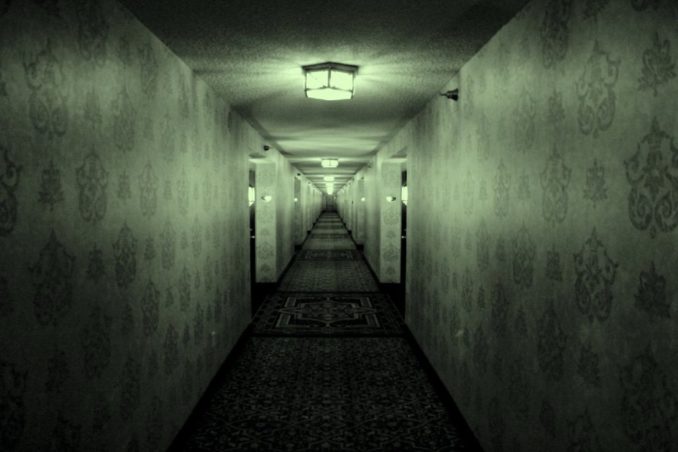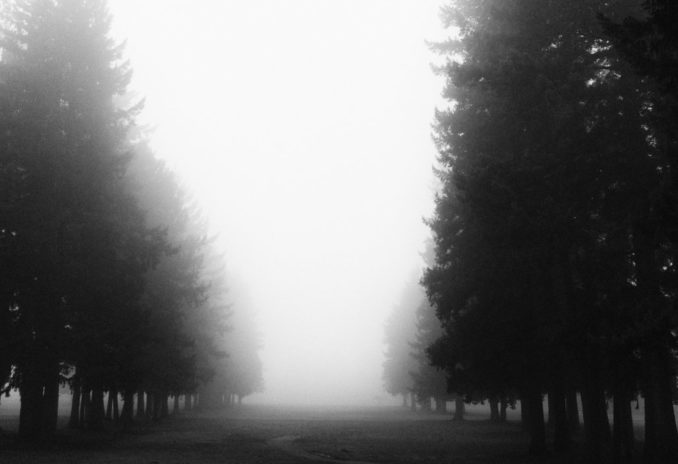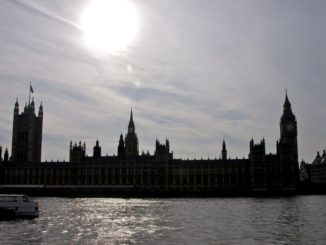
Mike Schmid – Licence CC BY-SA 2.0
It all started innocently enough with my dad. Namely, with a botched Chinese take away for his 79th anniversary. He got so badly over it he had to go to hospital and had to stay for the night. When he got home, he said it was nothing but an indigestion. That’s what staff said anyway. But as my mum told me later, his digestion slowly started getting worse over the next few weeks.
It is my firm belief that a more thorough check-up at the hospital – or indeed any check-up at all – which would have been the norm a few short years ago could have prevented the worst. Perhaps due to the lack of it, six months later, my dad was admitted as an emergency with an acute ileus. By that time, he hadn’t been able to go to the loo for five days. This time, he insisted on a different hospital (because the first one he’d been to wasn’t fit for animals, he said). They operated on him that same day, practically saving his life.
He then had two things: a stoma. And a diagnosis that it was The Big C. Cancer of the colon. A life with colostomy bags beckoned but they turned out to me rather harmless. Far worse was the metastasis in his liver. There were two of them, a computer tomography revealed. Prognosis was thus limited to two years on average, and that is after massive chemotherapy which didn’t bring a turnaround at all and a medication that could only postpone the inevitable. He died after a long an arduous struggle, almost exactly two years after having his colectomy.
After one and a half years of declining, but tolerable, health, he started getting restless over Christmas . It became harder for him to swallow and keep things down beginning late January. At the same time, he started bloating up. He’d been thin as a rake after chemo. His oncologist told him and my mum that it was serious in mid-February. Which is, I suppose, a mild form for indicating it was terminal. Which is something doctors are not allowed to say to their patients unless they inquire – which my dad did not. And he didn’t want to believe his oncologist.
On the 1st of March, he had to go to hospital again because he was getting so restless and seemed at one point to have lost his mind, as my mum confessed to me later. He was admitted to the university hospital. He had somewhat improved by Tuesday, only to be comatose on Saturday. When the nurse showed me to his room, it looked like he was about to die on that same day. Curtains drawn, single room, you get the picture.
So, I telephoned mum and asked her to come to the hospital. I also informed my cousin, his nephew. We stayed in his room for the night because we wanted to be there for him. He didn’t regain consciousness, but a grey and cold Sunday morning made us return home, where we intended to wait for the final phone call from the hospital. A call that – for better or worse – never came.
I briefly returned home only to make the trip again on Tuesday. Call it a hunch, but I knew I had to. By the time I got there, he was awake, talkative but struggling to get his meaning across. His kidneys had started working again, he was receiving intravenous hydration. Staff had decided to move him on to a care facility the following day. That’s what transpired after half an hour. He was extremely anxious and upset about it.
After a moment of numb, I realised the predicament. Hospitals would move patients on to the nearest care facility, regardless of where their relatives lived, unless someone intervened. That someone had to be me, obviously. As luck (or something else) would have it, social services was fully on board already and only down the corridor. It was all rather efficiently organised. Two or three phone calls were made, while I wrestled an autograph out of my poor old dad who until that moment had not given legal power of attorney to me or my mum. I could and probably should have drawn these ridiculous lines on a sheet of paper just to save him the trouble. They didn’t look at all like his autograph anyway.
With bureaucracy satisfied, all I could do was wait and return home. The care home called when I was changing trains. They sounded rather trustworthy in a down to earth, no nonsense sort of way. It was all about making the remainder of his days as pleasant as possible, they said. The only stumbling block was the lack of an LPA again.
Accordingly, I informed mum who was going to be there with him on Wednesday and made plans to go to the care home on Thursday. That’s when I had to wrangle two more signatures out of him: for his terminal care provision and an LPA. The former stipulated that if according to medical consensus, the inevitable was imminent, all treatment but pain relief had to be suspended. Including hydration. There was – after all – no point of pouring liquids into his body as by Thursday, his kidneys had stopped working again and he looked more bloated than ever.
He was admitted to a single room, had a small stereo with a radio, some curtains and a view to the garden. It didn’t look bad when I got there. It only smelled of urine in the lift and the corridor because the ward was full of dementia patients and the cleaners were apparently not up to the job. There were cries of “help me, help me” coming from the next room but I put it down to one of the patients going through a bad episode. And after all, who was I to burst into the other room. These cries would haunt me but – as it turned out – it really was another patient who clearly was out of her mind.
Staff were genuinely friendly, competent and emphatic. But on Friday, my dad grew restless again. He asked us to shoot him several times and threw his walking cane into the window, without causing any damage. A plastic cup followed suit. There was yet no hydration. His prognosis ranged from a few weeks to a few days. It looked like a few hours on Saturday, when he had again become comatose. My mum and I went home shortly after seeing him and we started waiting for the phone call from the care home. The one that’d inform us he’d died.
The phone call came but it was not the one we had expected. It was a nurse who had only been back from her holidays. She thought my dad rather needed a laxative. Whether we could get the medication for her from the nearest pharmacy as unfortunately, they had run out of it. A care home running out of laxatives? That’s when I thought that now, I had indeed seen it all.
After some protestations about this shamble, I put my mum and myself into the car and we arrived at the pharmacy just before closing time on Saturday. We drove on to the care home right away. I passed the medication on to the new nurse, made my apologies and we stayed a bit longer with my dad, who was awake and talkative.
We returned on Sunday with the family photo albums. This was – with hindsight – the best idea we ever had during this whole terrible week. My dad was awake and clearly remembered moments from his childhood. He could name people my mum and I had long forgotten. After one or two hours, his consciousness waned again. We stayed on and told him we loved him. He wanted to embrace us but couldn’t do so. I drove my mum home and stayed with him during the evening but went home at about 10 p.m. when he was asleep.
The next day, Monday, I grew restless. The direction of travel as it were had become all too evident. What’s worse: it had become clear to my dad too, I was afraid. Our relation had never been easy and only resolved during the last few weeks of his life. His realising that I had put him in this facility to die, threatened to take away all of this.
I talked to staff while my mum stayed with him. Staff told me that everything was being done in accordance with proper medical protocol. A doctor was at hand to sign off on his care plan every day. It was not possible to provide adequate intravenous hydration because his kidneys had stopped functioning (apparently right on the day he got out of hospital) and whatever liquid was poured into his body would just stay there, not to be excreted. They assured me again he would feel no pain.
On behalf of the – from my point of view quite realistic – assumption that he’d realised what was going on and was blaming me for it, staff recommended I tell him it was all doctors orders. This, I did if only to put my own conscience straight. My mum had resigned herself to the inevitable, and quite rightly so since continued medical intervention could only have prolonged his agony.

Unsettler – Licence CC BY-ND 2.0
We stayed for the day taking turns holding his hand, caressing his face and just being there. After driving mum home, I went back and stayed till 11 p.m., sneaking out of the door but waking him up when the clothes hanger banged against the cupboard. He briefly awoke and looked panic stricken.
I don’t remember anything about the next day (Tuesday) apart from a general feeling of rage, impotence, tiredness, heartache and pain. Wandering about in the room, I was reminded of the three little red boxes of ant bait tucked away behind the curtains. I had first realised them on Thursday, without having given them much thought. But now, I wondered whether they really were as innocent as they looked. Filled with ant bait or de-humifying agent, the kind electronics are shipped in from the Far East? After all, how could ants get to the second floor anyway? And why – after almost one week of staying in that room – would both my mum and I have pounding headaches, completely dried out noses and a general feeling of nausea? I put my concerns down to stress induced paranoia.
Wednesday morning, the care home called at an unusually early hour to tell us that “if we came over straight away, we could still see him alive”. We jumped in the car and carefully navigated through the morning rush hour. It all looked very dramatic with curtains drawn and one of the nurses sat at his side. She was genuinely upset and close to tears, bless her. My mum and I stayed for the morning. By eleven o’clock, the marbling had receded, and it became apparent that imminently, nothing was going to happen. Staff invited us to a lunch of salad, lentil soup and custard. The lentil soup wasn’t too bad.
My mum left in the afternoon, having clearly overreached herself. After driving her home, I stayed on for the night, at my wits end. By this time, my dad had been on an ever-increasing dosage of morphine. His eyes looked as clear-blue as ever though. He couldn’t speak but was quite capable of pressing my hand. By this time, his mind had irretrievably been shot away by dehydration and medication, but his eyes remained alive along with his breath, which by Wednesday had longer pauses, for up to half a minute, after which he’d resume breathing regularly. The nurse I had my run-in with (who turned out to be an all-around decent person being very dependable) made it clear to me that it was very hard for people with a strong heart to die this sort of way.
My dad’s heart was probably the only part of his body that had not been afflicted by some sort of illness during his life, so I granted her she had a point and went home at about 2 a.m. The same day, Thursday, had my mum and me realise we couldn’t go on like this. We made one final visit to dad and I drove home for the night, only to be woken after a short and deep sleep by a telephone call from the night nurse informing me, he had just died shortly before midnight. I tried reaching my mum, but she wouldn’t answer the telephone, so I went on to contact the undertakers who’d take care of all necessary formalities.
It was very hard to function like this. The one thing making it bearable was seeing my dad not in his desolate state of utter misery, but as the young man with his whole life ahead of him which he once was. When it all became serious, I had not imagined I would be made an instrument of the euthanasia machine. There’s not one single person pulling its levers, but it really is team-work and its bits are so thinly sliced that it’s easy to ignore the big picture, and to not see the wood for the trees. I know there was no alternative and continued medical interventions could only have prolonged his agony. I’m just more unsure than ever about the “eu“ part of euthanasia (in ancient Greek “eu” = beautiful, “thanatos” = death).
I had a dream a few nights after his death and saw my dad. I remember telling him that my mum’s sister (who had passed away 13 years ago) was going to pick him up. Upon which I saw my aunt doggedly approaching towards me with a face that said it all. I also remember his sister (who had passed away nine months earlier) being there and asking him, sat in a chair with me, what he would like.
My dad didn’t reply, but I remember him putting his arm around me in my dream. Wanting to embrace me was one of the last things he wanted to do when it was already impossible for him to do so. Then I realised, still in my dream, how frail his arm had become, and that I might through some silly move be breaking it. I arose form my sleep and he was gone.
© Guardian Council 2019
The Goodnight Vienna Audio file
Audio Player



